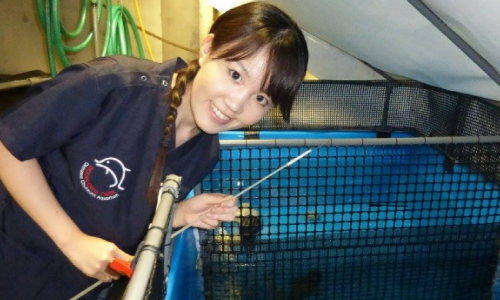
 Learning how to effectively communicate in a new work environment can be difficult enough, but add a language barrier and things get even more complicated. After working 9 months as an ESL co-op teacher in China, I feel I have a good handle on the skills required to teach, and I continue to develop in this environment. In many of my classes I’m able to instruct the students and connect with them, only knowing very basic Mandarin Chinese. Due to this lack of Chinese speaking-skills, I often run into miscommunications and confusing scenarios in the office.
Learning how to effectively communicate in a new work environment can be difficult enough, but add a language barrier and things get even more complicated. After working 9 months as an ESL co-op teacher in China, I feel I have a good handle on the skills required to teach, and I continue to develop in this environment. In many of my classes I’m able to instruct the students and connect with them, only knowing very basic Mandarin Chinese. Due to this lack of Chinese speaking-skills, I often run into miscommunications and confusing scenarios in the office.
Sometimes the language obstacles can be fairly comical and lighten up my work environment. The other week I asked my supervisor if I could bring Joe, a fellow English teacher, to our company dinner. Puzzled, she looked at me and asked, “You mean you want to bring your own wine to dinner?” I answered, rather puzzled as well, “No, I mean my friend Joe?” We both laughed because she had confused the Chinese word for wine, “jiu”, for my friend’s name, “Joe”. In instances like this, I can appreciate the language difference as a fun and quirky aspect to my job that I wouldn’t otherwise get to experience. However, sometimes the arising complications are less amusing. Whether it’s a misunderstanding about words used in emails or confusion over work delegations, the resulting problems can be frustrating. But after nine months, I’ve learned a few methods to help with these issues.
Here are some techniques I’ve found helpful for communicating around a language barrier:
1. Face-to-Face Communication is Best
If further clarification is needed. Sometimes emails can be confusing or phone calls difficult to understand. Every time I needed to understand more I would approach my supervisor directly at a time convenient for him. Speaking in-person can make up for misunderstandings through silent forms of communication, such as body language, and can also help your employer to better understand your intentions.
2. Ask a Co-Worker for Help
Even if a work notice is written in your language, there may be expressions or words used that don’t seem to make sense in the context. In my experience, these are cultural uses of English or direct translations. Usually a person who speaks English and knows the local uses of the language can help explain.
3. Utilize Time
If you misunderstand a task asked of you, don’t wait for clarification. Act right away to seek understanding or it may be too late and will reflect poorly on your work.
4. Learn the Language
This seems like a no-brainer, and a lot of effort especially in a 4-month co-op. However, even the slightest bit of study can help bridge the gap when communicating with your employers. They’ll also find it impressive that you’re trying to learn their language!
Beyond the Blog
-
To learn about opportunities like Julia's, visit the International Co-op Page














